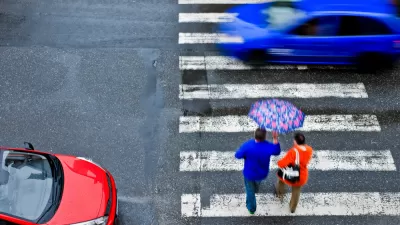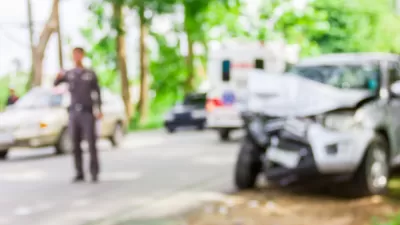A new report by the insurance industry studying the relationship between crashes and legalized recreational marijuana sales found that crashes can be expected to increase by three percent. A news report from Denver questions their findings.
Recreational marijuana was legalized in Washington and Colorado for adults 21 and older in 2014, about two years after both states passed propositions in November 2012. Oregon followed suit in 2014, with sales beginning a year later.
The new study, "High Claims: Legalizing recreational marijuana use is linked to increase in crashes," found that "collision claims frequencies are about 3 percent higher [in the three states] overall than would have been expected without legalization." The study was released June 22 by the Highway Loss Data Institute which conducts scientific studies of insurance data for the Insurance Institute for Highway Safety, "an independent, nonprofit scientific and educational organization dedicated to reducing ....crashes on the nation's roads."
Colorado saw the biggest estimated increase in claim frequency compared with its control states. After retail marijuana sales began in Colorado, the increase in collision claim frequency was 14 percent higher than in nearby Nebraska, Utah and Wyoming. Washington's estimated increase in claim frequency was 6 percent higher than in Montana and Idaho, and Oregon's estimated increase in claim frequency was 4 percent higher than in Idaho, Montana and Nevada.
The reason why the "combined effect" for the three states is smaller, three percent, is because that analysis "uses a bigger control group and is a good representation of the effect of marijuana legalization overall," states Matt Moore, senior vice president of HLDI. "The single-state analyses show how the effect differs by state."
However, a spokesperson for the Colorado State Patrol didn't express support for institute's findings, reports Karen Morfitt for CBS Denver. "[T]he data simply isn’t there," said Colorado State Trooper Josh Lewis.
“Ultimately when it comes down to its one more thing that we are looking at… but marijuana is not new,” Lewis said.
The institute's findings appear to be consistent with reports showing an escalation of driving under the influence of drugs (DUID), posted here in 2015 and in April. A Washington Traffic Safety Commission report in 2015 found a similar correlation but advised that more research be done.
“Worry that legalized marijuana is increasing crash rates isn’t misplaced,” says David Zuby, Executive Vice President and Chief Research Officer of the Insurance Institute for Highway Safety.
FULL STORY: Legalizing recreational marijuana is linked to increased crashes

Planetizen Federal Action Tracker
A weekly monitor of how Trump’s orders and actions are impacting planners and planning in America.

Map: Where Senate Republicans Want to Sell Your Public Lands
For public land advocates, the Senate Republicans’ proposal to sell millions of acres of public land in the West is “the biggest fight of their careers.”

Restaurant Patios Were a Pandemic Win — Why Were They so Hard to Keep?
Social distancing requirements and changes in travel patterns prompted cities to pilot new uses for street and sidewalk space. Then it got complicated.

Platform Pilsner: Vancouver Transit Agency Releases... a Beer?
TransLink will receive a portion of every sale of the four-pack.

Toronto Weighs Cheaper Transit, Parking Hikes for Major Events
Special event rates would take effect during large festivals, sports games and concerts to ‘discourage driving, manage congestion and free up space for transit.”

Berlin to Consider Car-Free Zone Larger Than Manhattan
The area bound by the 22-mile Ringbahn would still allow 12 uses of a private automobile per year per person, and several other exemptions.
Urban Design for Planners 1: Software Tools
This six-course series explores essential urban design concepts using open source software and equips planners with the tools they need to participate fully in the urban design process.
Planning for Universal Design
Learn the tools for implementing Universal Design in planning regulations.
Heyer Gruel & Associates PA
JM Goldson LLC
Custer County Colorado
City of Camden Redevelopment Agency
City of Astoria
Transportation Research & Education Center (TREC) at Portland State University
Camden Redevelopment Agency
City of Claremont
Municipality of Princeton (NJ)





























